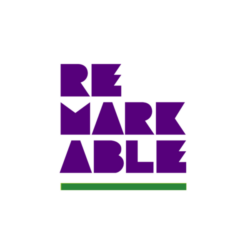Jacob Muller, one of our Entrepreneurs in Residence, is an extremely driven individual who has a passion for supporting ambitious, tech-driven projects that make the world a better place. As CEO of Masterly, a startup focused on assisting people transition into different work roles in a time of constant technological change, Jacob has valuable experience and advice that has been helping the Remarkable startups through their journey.
Jacob shares with us a reflective and educational piece which offers insights into startup financials, and some great advice on how to stay on track.
The two most important things in startup financials
Startup financials are a beast of a topic.
But if you’re time poor, what are the most critical things to focus on?
Accountants and other professionals will tell you there are a multitude of things, and that everything is super important. They will hand you immaculately engineered spreadsheets and checklists, beaming with pride at their elaborate creations.
You might mistake them for works of art. And you’re kind of right, in a way. Most financials I’ve seen are like a completed canvas – designed to be appreciated (but definitely not touched!)
I’m writing to you as an ex-accountant who became a founder almost 5 years ago now. During my transition from that career to this one, I realised a lot of the work financial professionals do operates on the assumption that the future is predictable.
This renders much of their work unusable pretty quickly in the chaotic world of early stage startups, where the only thing that is certain is that your projections will be wrong.
So I spent years trying to find signal in the noise. I unlearned many of the things I once took as gospel, and ultimately came out the other side with a focus on getting two things right above all else:
- Making sure the company doesn’t run out of money
- Making rapid financial decisions in a calculated way
To help me focus on these areas, I built a not-so-immaculately-engineered model, which I use as a working document. It’s a canvas that I keep returning to without ever finishing.
It isn’t particularly groundbreaking. It’s just designed to be useful. The kind of thing that only takes you 10 mins to update every week or two when you want to check in on the financial health of your startup.
You can use this model to answer a number of questions:
- What is our monthly burn rate?
- How long until we run out of money if we don’t bring in any revenue?
- What sales targets do we need to make sure we don’t run out of money?
- If we can’t stay in the green with sales alone, when do we need to raise capital by?
- When can we afford to hire [insert role]?
- Can we afford to pay for [insert expense]?
I hope it’s useful to you.
Please feel free to reach out on LinkedIn if you have questions and, as always, if you have suggestions on how to improve it.







